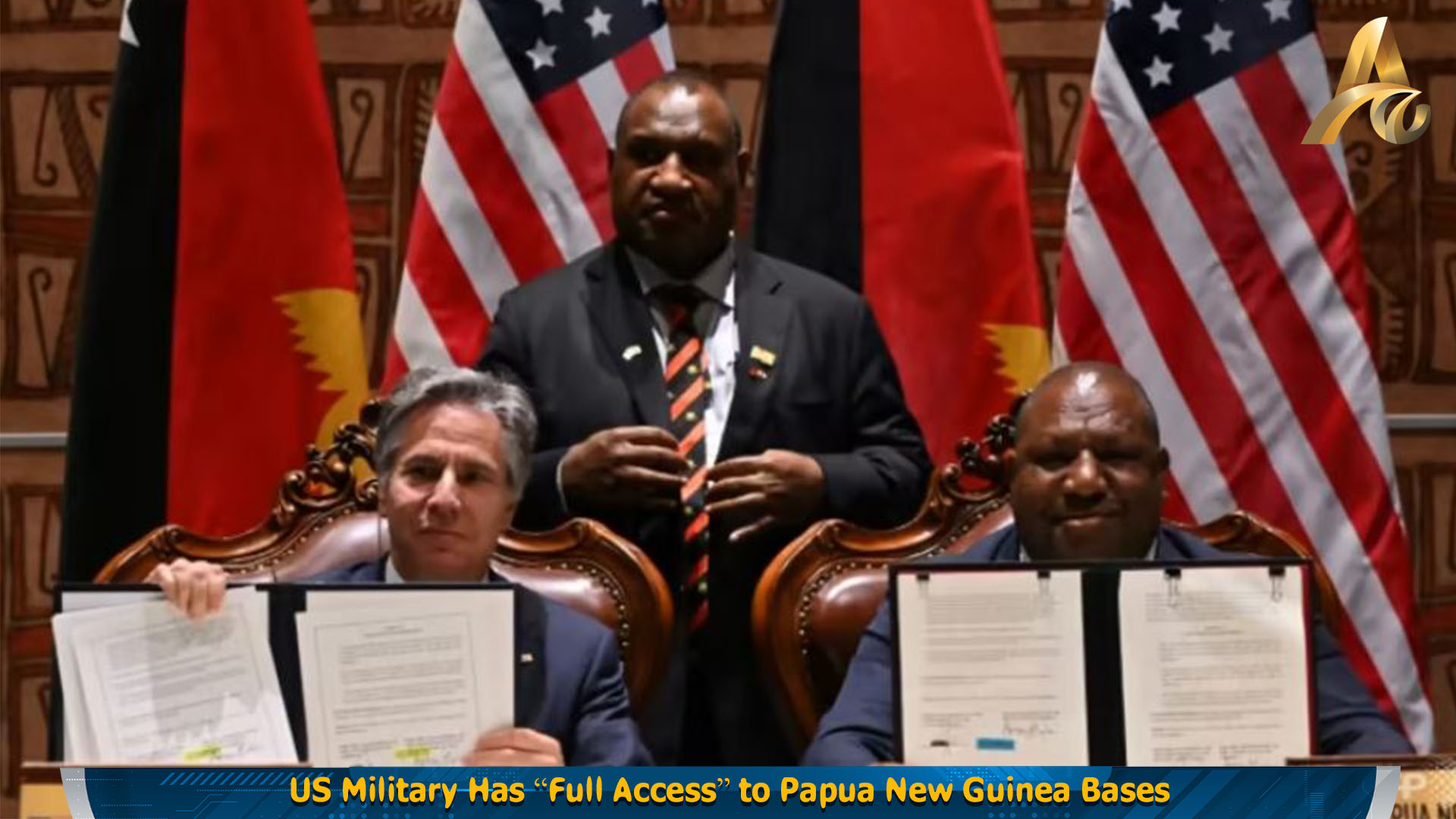INTERNATIONAL: A landmark security pact has been revealed, indicating that the US military will have the ability to establish and operate from bases in Papua New Guinea. The agreement, which aims to counter China's influence in the Pacific region, was tabled in Papua New Guinea's parliament on Wednesday evening (Jun 14) and obtained by AFP.
Under this pact, the United States has secured permission to deploy troops and vessels at six key ports and airports, including Lombrum Naval Base on Manus Island and facilities in the capital, Port Moresby. The agreement grants Washington "unimpeded access" to these sites, allowing them to pre-position equipment, supplies, and materials. Additionally, certain zones will be exclusively dedicated to the US, enabling development and construction activities.
This development opens up the opportunity for the United States to establish a military presence at a strategically significant deep-water port, further intensifying its competition with Beijing. Lombrum, situated at the southwestern edge of the Pacific Ocean, has historically served as a garrison for British, German, Japanese, Australian, and US troops. During World War II, it played a crucial role as one of the largest US bases in the Pacific, aiding in the liberation of the Philippines from Japan.
China had also sought a foothold at Lombrum in recent years but was ultimately surpassed by Australia and the United States. In 2018, these two nations reached an agreement to jointly develop the facility in collaboration with Papua New Guinea. Granting US troops access to Lombrum could potentially strengthen American facilities on Guam, which could prove vital in the event of a conflict related to Taiwan.
Prime Minister James Marape has faced criticism and protests regarding the deal, with some opponents questioning whether Papua New Guinea is compromising its sovereignty. However, Marape defended the agreement, emphasizing the need to bolster the country's military capabilities to safeguard sovereignty.
Papua New Guinea, with its abundant natural resources and proximity to major shipping routes, has become a focal point in the diplomatic power struggle between Washington and Beijing. Former Prime Minister Peter O'Neill expressed concerns, suggesting that the agreement makes Papua New Guinea a target. He acknowledged the geopolitical dynamics at play in the region, stating that the United States is acting in its own national interest.
US President Joe Biden was scheduled to visit Papua New Guinea to sign the agreement, but the trip was disrupted due to a budget dispute in the US Congress. The United States aims to attract Pacific nations by offering diplomatic and financial incentives in exchange for strategic support, mirroring similar efforts made by China.
Chinese companies have been acquiring mines and ports across the Pacific, and last year, they signed a secretive security pact with the nearby Solomon Islands, potentially allowing for the deployment of Chinese troops to the country. Concerned about China gaining a military foothold in the South Pacific that could outmaneuver American facilities on Guam, the United States also worries about the implications for the defense of Taiwan in the event of a mainland Chinese invasion.
(Source CNA)






















